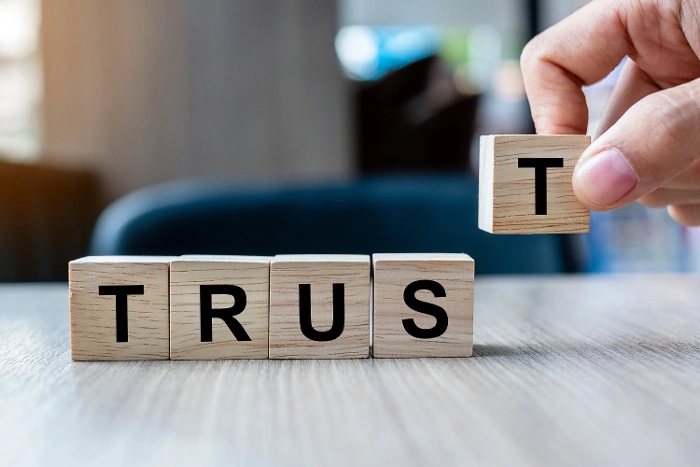
Blog: Building trust is a must

In the age of AI and misinformation, it’s clear that our trust in people, organisations, technology and the media is being undermined.
We are advised to question everything from AI search results to social media posts and images and news reports.
While questioning is essential, it comes at a cost and being more sceptical and less trustful has risks for our society and community connection. In this environment, how do organisations and businesses build trust?
A recent study published in the American Psychological Association’s Psychological Bulletin found that people who are generally more trusting tend to report greater wellbeing and found that trust plays a key role in how happy and satisfied people feel.
Unfortunately, it might be a stretch for a business or organisation to simply tell their employees and customers that trusting them is good for their wellbeing.
So, what’s the answer? My view is that organisations need to build trust internally before they can properly build trust externally. Employee (or internal trust) is vital for helping build trust externally.
This ‘Inside Out’ view was reinforced last week when the Hughes team came together for a professional development day focussed on building trust and Stephen Covey’s Leading at the Speed of Trust.
In the current environment, Covey’s insights appear more relevant than ever. His Five Waves of Trust Model is derived from the ripple effect of starting with Self-Trust leading to Relationship Trust and then Organisational Trust, Market Trust and eventually Societal Trust.
His model highlights that internal trust among employees accelerates innovation, communication, and execution. Internal trust is built through transparency, consistency, and empowerment.
Employees are an organisation’s most valuable advocates — but only when they feel informed, respected, and secure. Inconsistent messaging, vague communication, or a lack of transparency can quickly erode morale and create doubt.
This makes clear and proactive communication essential. Organisations must be transparent about what they do, how they do it, and what they stand for.
When crises arise — or when false information about an organisation spreads – organisations are far better positioned to weather the storm if they have already built a foundation of trust through consistent, authentic messaging.
In the age of misinformation, trust has become a risk that can amplify an organisation’s vulnerability.
However, if trust is carefully built, managed, and maintained, it can become its greatest competitive advantage.
Hughes | Consultant
Recent News
- $120 million parkline development opens its doors: New apartments driving 40-year high housing approvals in SA
- Work starts on $180 million, 254-home Senses residential development
- Blog: Take the time to strategise and plan ahead for 2026
- Detmold Group on track with 2025-2050 sustainability goals
- Moving from homelessness to homefulness: five policy areas for change
- CH4 Global scoops the pool with 2 international sustainability gongs
- Sports College SA to partner with Tjindu Foundation
- Indonesia AirAsia to fly daily between Adelaide and Bali
- Your Voice, Your Needs: National survey to improve medical and allied health care for Australians living with Parkinson’s
- International student wins a year’s free accommodation with Yugo and Student.com
- Attention all potential puppy raisers!
- Breaking New Ground: OARS appoints first female CEO in 139-year-history
- Blog: Christmas is a time for Ho Ho, not Uh Oh!
- Aspire program to wind back as homeless crisis grows and services struggle
- Facility Dog Marley arrives at headspace Mount Barker!
- Work starts on $175 million Tudor Vale retail centre at Munno Para West
- Plaza Premium Group celebrates the grand opening of Australia’s only independent domestic airport lounge in Adelaide
- The Federal Circuit and Family Court of Australia swears in its latest four-legged friend, Bonnie
- Bene Aged Care opens Specialist Dementia Care Unit - the first in Adelaide's northern suburbs
- Adelaide and Parafield first Australian airports to reach highest level of Airport Carbon Accreditation
 We'd love to chat
We'd love to chat







